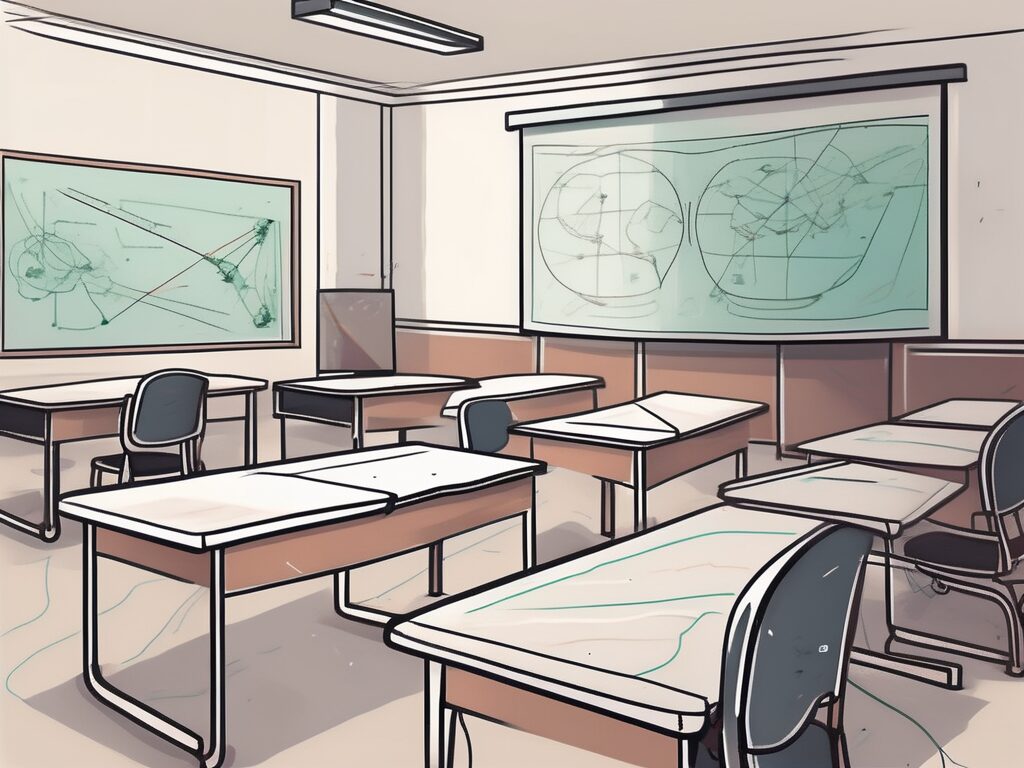The teaching profession, while rewarding, is not without its challenges. This is particularly true when considering the unique educational landscapes of countries such as Saudi Arabia and Qatar. Both nations have made significant strides in education reform, yet they continue to grapple with a variety of issues that impact the teaching and learning process. In this exploration, we will delve into four key comparisons of teaching challenges in these two Middle Eastern powerhouses.
1. Curriculum Development
Saudi Arabia
In Saudi Arabia, one of the main challenges faced by educators is the rigid and outdated curriculum. The focus is largely on rote learning, with little emphasis on critical thinking or problem-solving skills. This traditional approach to education can stifle creativity and limit students’ ability to adapt to the ever-evolving global job market.
Furthermore, the curriculum in Saudi Arabia is heavily influenced by religious teachings, which can sometimes overshadow other important subjects such as science and technology. This imbalance can hinder students’ overall academic development and limit their exposure to a well-rounded education.
Qatar
On the other hand, Qatar has made significant efforts to modernise its curriculum. However, the rapid pace of change has brought about its own set of challenges. Teachers often struggle to keep up with the new curriculum demands, which require a shift from traditional teaching methods to more interactive and student-centred approaches.
Moreover, the implementation of the new curriculum has been met with resistance from some educators and parents who are more comfortable with the old system. This resistance to change can slow down the progress of education reform in the country.
2. Teacher Training and Professional Development
Saudi Arabia
Another challenge in Saudi Arabia is the lack of adequate teacher training and professional development opportunities. Many teachers in the country are not equipped with the necessary skills and knowledge to effectively deliver the curriculum. This is particularly true for teachers in rural areas, who often have limited access to training resources.
Furthermore, the high teacher turnover rate in Saudi Arabia exacerbates the problem. The constant need to recruit and train new teachers puts a strain on the education system and can negatively impact the quality of education.
Qatar
Qatar, on the other hand, has invested heavily in teacher training and professional development. However, the country still faces challenges in attracting and retaining qualified teachers. The high cost of living and the cultural differences can deter foreign teachers from working in the country.
In addition, the emphasis on English language instruction in Qatar’s schools has led to a shortage of teachers for other subjects. This imbalance can affect the quality of education and limit students’ learning opportunities.
3. Educational Infrastructure
Saudi Arabia
In Saudi Arabia, the educational infrastructure is another area of concern. Many schools, particularly in rural areas, lack the necessary facilities and resources to provide a quality education. This includes basic amenities such as libraries, laboratories, and technology-enabled classrooms.
Moreover, the large student-to-teacher ratio in many Saudi schools can hinder individualised instruction and impact the overall learning experience. This issue is further exacerbated by the lack of adequate support staff in many schools.
Qatar
Qatar has made significant investments in its educational infrastructure, with state-of-the-art schools and universities. However, the country still faces challenges in ensuring equal access to these facilities. For instance, students in remote areas may not have the same educational opportunities as those in urban areas.
Furthermore, the heavy reliance on technology in Qatar’s schools can widen the digital divide among students. Those who lack access to technology at home may struggle to keep up with their peers, thus affecting their academic performance.
4. Cultural and Linguistic Diversity
Saudi Arabia
The cultural and linguistic diversity in Saudi Arabia’s classrooms presents another challenge for teachers. With a significant number of non-Arabic speaking students, teachers often struggle to deliver lessons that cater to all students’ needs. This can lead to a sense of exclusion among some students and impact their academic performance.
Furthermore, the cultural differences can sometimes lead to misunderstandings and conflicts in the classroom. Teachers need to be culturally sensitive and inclusive to create a positive and conducive learning environment.
Qatar
Similarly, Qatar’s diverse student population poses challenges for teachers. The country’s education system is largely bilingual, with instruction in both Arabic and English. However, this can be a challenge for teachers who are not proficient in both languages.
Moreover, the cultural diversity in Qatar’s classrooms requires teachers to be culturally competent and able to manage a multicultural learning environment. This includes understanding and respecting the different cultural norms and values of their students.
In conclusion, while both Saudi Arabia and Qatar have made significant strides in their education systems, they continue to face a myriad of challenges. These range from curriculum development and teacher training to educational infrastructure and cultural diversity. Addressing these issues is crucial for both countries to ensure a quality education for all students and to prepare them for the global job market.
Empower Your Teaching Career with IPGCE
As educators in Saudi Arabia and Qatar navigate the complex challenges of curriculum development, cultural diversity, and the quest for quality education, IPGCE stands as a beacon of professional advancement. If you’re looking to enhance your qualifications, connect with a global network of educators, and gain a deeper understanding of international curricula, the International Postgraduate Certificate in Education (iPGCE) is your gateway to success. Join the ranks of teachers who have seen a 50% increase in interview callbacks, a 45% boost in promotion rates, and a significant salary increase. Embrace the opportunity for professional growth while balancing your commitments through our flexible online study options. Don’t let inadequate credentials or isolation impede your career—Join the UK’s #1 Teacher Training Course today and transform your teaching journey.

